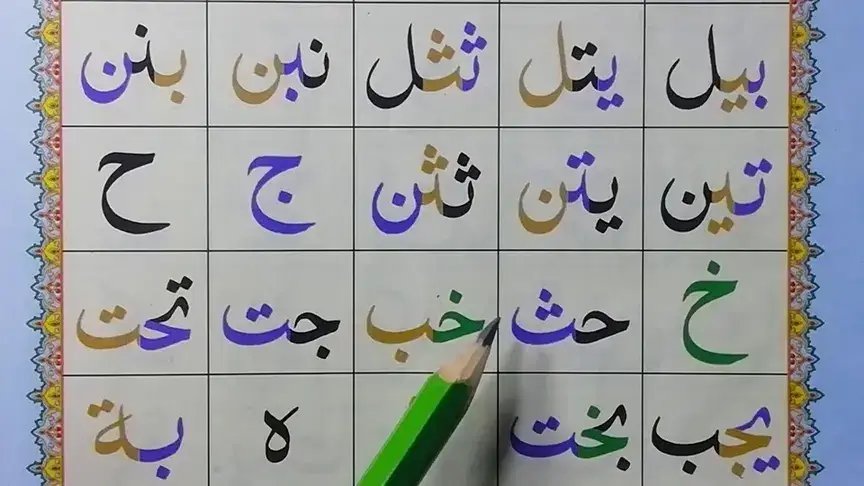Any Muslim should make learning to read Quran correctly a priority. Noorani Qaida is one of the most commonly used resources for this reason. When you use Tajweed, the rules of Quranic pronunciation, this resource is powerful for all children and beginners. Now, learning the Noorani Qaida with Tajweed online is simple and convenient anywhere and at any time.
Here, we’ll show you how to learn and practice Noorani Qaida with Tajweed on the internet, step by step.
What do we mean by Noorani Qaida?
Noorani Qaida helps individuals unfamiliar with Arabic learn its script and the main rules of reading the Quran. It shows students the alphabet, vowel signals, how to pronounce words and how to mix letters.
The lessons are organized in clearing order from:
- Recognizing the letters of the alphabet.
- Studying how to write the Fatha, Kasra and Dammah marks
- To understand Tanween, Madd, Sukoon and Shaddah
- Combining letters forms words and then strings those words together to make sentences
- When students get taught Tajweed, they start using the exact words and rhythm when reading the Quran.
What makes learning Noorani Qaida with Tajweed necessary?
Pronouncing the Quran correctly helps improve the way we recite it.
Every letter in the Quran is read correctly from its proper position, using the right features of Tajweed.
Forms a Secure and Stable Beautiful Home
The aim of Noorani Qaida is to help someone read the Quran correctly without mistake.
All Ages are Welcome
This book benefits children, new Muslims and adults who wish to improve their way of reading the Quran.
Flexible Wherever, Whenever
It is possible to study at your convenience using either a teacher or self-paced video courses on the internet.
Follow this easy guide to studying Noorani Qaida online.
Choose the Right Place to Learn
Find Quran academies or teachers online, preferably those who have helped others learn before. Prefer instructors who are skilled in Tajweed and have past experience teaching Noorani Qaida.
If the gym offers trial sessions, sign up to see how well they perform.
The second step is to learn the alphabet.
You should first learn how to recognize and say every Arabic letter. Go over these words many times so you can point them out with or without vowel marks.
In the third step, get familiar with the special vowel-like marks that make up the Arabic script.
Be aware of how the short vowels Fatha, Kasra and Dammah affect the way you pronounce letters. Tajweed rules show you the proper way to add vowels to a word and pronounce them accurately.
At the fourth step, work on practicing Sukoon and Shaddah.
They help different letters be joined together and improve your speaking. This part of the course shows you how to join letters properly and use pauses taught by Tajweed.
- At step five, focus on Tajweed.
- Study the main rules for Tajweed such as:
- Ikhfa means to hide the sound the prayer is made in.
- Idghaam – the act of uniting letters
- Qalqala – sound that bounces off objects
- Ghunna is a sound formed by nasalizing your voice.
The rules make your pronouncement accurate and give your recitation a soothing tone.
Daily practice is important, so you can either use a tutor or follow along with video lessons.
Sticking with your routine is really important. Study with your tutor every day or religiously use an organized video course. There are many platforms that provide you with quizzes, tools you can use to interact and feedback from your voice.
Review and memorize the verses from the Quran.
When you have moved through the Qaida, begin reading some of the shorter Surahs while using Tajweed. Applying what you learn in Quran starts with Juz Amma (final part of the Quran).
- The Top Internet Websites for Learning Noorani Qaida with Tajweed
- Programs on YouTube focusing on teaching the Quran
- Users can install Quran Companion, Learn Noorani Qaida or iQuran
- Online locations where you can study the Quran and Islamic knowledge in real time
- You can now download PDFs and practice Patrol Qaida through online pages.
- Suggestions for Making Things Easier
- Choose a regular time every day to study.
- Create a notebook with the rules of Tajweed and words that are challenging for you.
- You can use a recording to monitor your own progress.
- Here is something to keep in mind: being aware of your teacher’s feedback is important to your development.
Final Thoughts
If you want to become fluent at reciting the Quran, start with Noorani Qaida with Tajweed. Thanks to technology today, you can learn while at home with teachers and interesting materials. If you’re learning for the first time or adding to what you know, make your initial step now and uncover the knowledge of the Book of Allah with confidence.

